- Home
- William Hill
The Vision Master Page 2
The Vision Master Read online
Page 2
There was one thing he was very good at. Well, better than most people, at least people his age. Actually, it wasn't a matter of how well as it was of how much. And that was reading. He read everything from the ingredients on soup cans to the dictionary. He knew that many scientists say that the one thing that separates humans from the rest of the animal kingdom is tool making, but he also knew many other animals — Chimps, for example — make or use things as tools. He firmly believed that the one thing that makes humans special is language, but not to be confused with the ability to communicate as bees and ants, even higher primates, elephants and porpoises can communicate with one another, using physical movements and/or sounds to denote specific meanings. Language means proper words. Moreover, words are power; the more words you know, the more educated you appear. And the better you speak the more people will listen and defer to you. That’s why he loved the dictionary. So whenever he read a word he didn’t know, the first thing he did was reach for a dictionary. If he had any advice, his only advice, to a young or new reader, it would be to always have one close at hand, and to use it. "Memorize a new word’s meaning, use the word at least five times a day for a week, and it will become part of your normal vocabulary. You now own the word, it is a part of you". This had been instilled in him by his freshman year English teacher, Mr. Long, who lived the words of Kahlil Gibran (who wrote The Prophet), "The wise teacher leads you to the threshold of your mind" (taking you from what you know to what you don’t). He took as his credo the words of publisher Malcolm Forbes, who said, "Education replaces the empty mind with an open one". Long also stressed that a writer’s goal should not only be to entertain the reader, but also to educate, and if by no other means, then at least by the use of language and vocabulary. "Never use two fifty-cent words when one dollar word will say the same thing!" And, "Make the reader rise to a higher level — never write down to the reader’s level". Liam also liked another adage by Mr. Long: "Brevity is a sign of a disciplined mind. However, as a writer, do not have a Swiss cheese imagination. Don’t make your reader guess at what you mean, fill in the holes!" Mr. Long often accused him of having a "Swiss cheese imagination", but he could not harmonize "brevity" with the necessity of "filling in the holes" with extra words!
He especially liked histories from where his family originally came from. He was mostly Norman French on his mother's side. He once read that they were Vikings, mostly from Denmark, that settled along the coast of France, and how they and other Vikings from Norway and Sweden (both whom had been under Danish rule at one time or another) had also established colonies in England, Ireland, Scotland, modern-day Turkey, Russia. And, of course, Vinland, and L’Anse aux Meadows in Newfoundland, Canada. The Vikings were sea-going farmer-adventurers (although most people considered them pirates, often with good reason) who left their snowy fjords between the sowing and reaping on their farms in search of new lands and new treasures. Basically, they were farmers with attitude. On his father's side he was, as his last name signified, a Scot. But not originally. His clan was from Ireland before they went and stayed in Scotland. They were called Gaels, a name given to them by the Romans that meant 'pirate'. In addition, he had learned that his clan began with a guy named Somerled who was born in Ireland of a king-in-exile from the Argyll region of southwestern Scotland, and a Norwegian Viking princess. Somerled himself also married a Norwegian Viking princess, went back to Scotland, reclaimed his father's kingdom, and it was his grandson, Donald, whom the clan was named after. Therefore, it seemed that if he was Gael-pirate, and Viking-pirate, he was more pirate than anything else. And, a royal pirate at that! He thought that was pretty dope. He often wondered if that's why he had liked to play Pirate so much as a kid.
If anyone read more than he did, one needn't look any father than the house he lived in. Every evening, once his dad came home from work and the family had their supper, one could find his dad, his mother, and his younger sisters curled up in chairs or on the sofa with a book in their lap. The television would be on, with the volume turned down low (and with nobody paying any attention to it). But he preferred to do his reading lying on his bed in his room. For one thing, he found it more comfortable to read there.
It was after supper and he was in his bedroom lying on his bed trying to finish yet another story about one of his favorite characters, Sherlock Holmes, by Sir Arthur Conan-Doyle, in-between his thoughts that kept jumping back to what seemed to have happened earlier. He had always been fascinated by Holmes' amazing ability to analyze and solve every kind of mystery. If only Sherlock could help me solve mine! he thought. He was reading the story "The Valley of Fear", and had just got to the part where Holmes says to his companion and assistant, Dr. Watson, "Elementary…" (preparing to explain how he solved the case), when his phone rang. Dang it, I hate to be interrupted, especially at the good parts! He looked at the Caller ID and saw it was Carol. Another reason why he preferred to read in his room; he didn't especially want anyone in his family to listen to his phone conversations, especially if they were from Carol.
"Hey, Carol," he answered.
"Liam. Missed you at school today, were you sick?"
"Nah, I just had some personal business to take care of," he said in the tone that she knew he always used whenever he didn’t want to talk about something. Whatever it was, whenever he used the word “personal” in that tone she knew to leave it alone.
“So, what are you reading?" she asked.
"What makes you think I'm reading?"
"When aren't you?" she said.
He thought he heard a little sarcasm in her voice and thought, Geez, she knows me too well! "Not when I'm with you," he answered.
She laughed.
"Actually," he said, "I was just finishing a Sherlock Holmes story."
"Okay, Sherlock, can you use your powers of deduction and guess what I'd like us to do this weekend?"
"Well, I surmise by the content of your question that you would like us to get together and go out?" he said, making sure she'd hear his sarcasm.
"Well, duh," she answered.
This game is getting old, he thought. "Maybe it would be easier if you just tell me what you'd like to do?"
"Well, what about a movie?"
"Okay, which one?"
"I don't care. You choose."
"I don't either."
"What if I choose a chick-flic?"
"Any movie you want will be fine, even a 'chick-flick', so long as it's with you."
"That's sweet. I'll check out what's playing. Love you."
"You too," he said, hanging up.
He really liked Carol. In the important things, they were in reasonably close agreement. In just about everything else they agreed to disagree (at least he agreed; he wasn’t so sure what she thought. Sometimes she did, sometimes she didn’t). In many ways, they were opposites. Where he saw the half-filled glass as half empty, she saw it half full. He expected the worst and was happy if things turned out well, she expected the best and was disappointed if things went south. She saw the best in people and was hurt when they did or said something she thought was wrong, he only saw their faults (at least at first) and was pleasantly surprised when they said or did something he liked. While she loved the mountains, he loved the beach. She loved warm sunny days; he loved cold, rainy days. They complimented each other; they were two sides of a coin. Of course, he and Carol had their faults, too. It's just that he chose not to dwell on what he considered his own shortcomings, just as he chose to ignore hers. Overall, they loved each other. More than that, they were each other's best friend (even if one or the other didn’t always realize it). If there was ever proof that opposites attract, they were it. He glanced at his clock and saw it was time for bed. Looking down at his book he thought, Elementary, my dear Holmes, I guess I won't finish your mystery tonight, nor mine. The book was due back to the school library tomorrow. He would finish it in the morning before he left.
Cha
pter Three: Drew and Scott
“I know we’ll be friends for life, sharing our dreams together.”

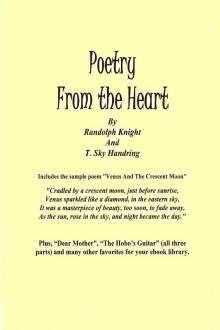 Poetry From the Heart
Poetry From the Heart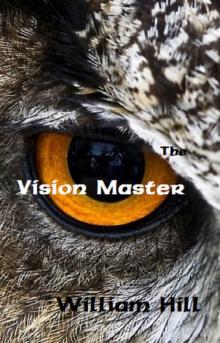 The Vision Master
The Vision Master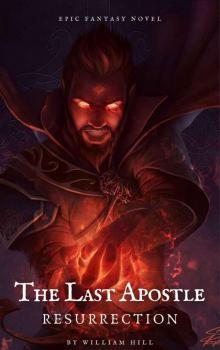 The Last Apostle : Resurrection
The Last Apostle : Resurrection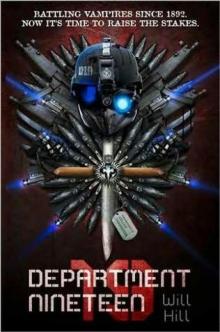 Department 19 d1-1
Department 19 d1-1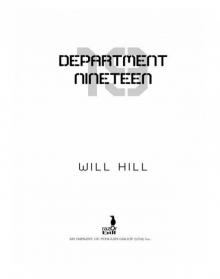 Department 19
Department 19